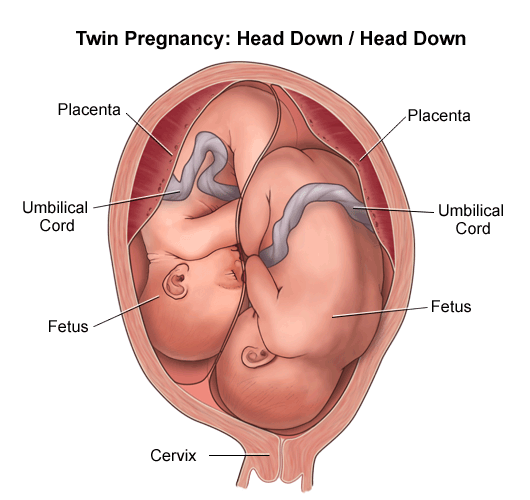Severe morning sickness, a condition that affects a small percentage of pregnant women, can be a daunting challenge for expectant mothers. Despite its rarity, hyperemesis gravidarum (HG) can significantly impact the well-being of both the mother and the developing baby.
This article aims to shed light on the latest research surrounding the causes of severe morning sickness and offer practical strategies for managing this condition. By understanding the underlying factors and implementing evidence-based approaches, women facing HG can navigate this challenging journey with confidence and support.
Severe Morning Sickness in Pregnancy
Hyperemesis gravidarum is a severe form of morning sickness that goes beyond the typical nausea and vomiting experienced by many pregnant women. It is characterized by persistent, unrelenting nausea, frequent vomiting, weight loss, and dehydration. Unlike the more common morning sickness, which usually subsides by the second trimester, HG can last throughout the entire pregnancy, posing serious risks if left untreated.
I’ve seen the profound impact that HG can have on expectant mothers. It’s not just a case of feeling a bit queasy in the mornings – HG can be utterly debilitating, making it difficult for women to keep down even the most basic of foods and fluids. This, in turn, can lead to severe dehydration, electrolyte imbalances, and even malnutrition, all of which can have serious consequences for both the mother and the developing baby.
5 Causes of Severe Morning Sickness
Expectant mothers face when dealing with severe morning sickness, also known as hyperemesis gravidarum (HG). This debilitating condition affects less than 3% of pregnant women, but it can have a significant impact on their well-being and the health of their developing baby.

1. Hormonal Changes and Severe Morning Sickness
The primary driver of severe morning sickness, or hyperemesis gravidarum (HG), is believed to be the rapid rise in pregnancy hormones, particularly human chorionic gonadotropin (hCG) and estrogen.
Surge in hCG Levels
Several studies have found a correlation between higher levels of hCG and the severity of nausea and vomiting in pregnancy. hCG is produced by the placenta and its levels surge rapidly in early pregnancy, peaking around 10-12 weeks.
A recent study published in the journal Nature identified the hormone GDF15, also produced by the placenta and fetus, as a key player in triggering morning sickness. The researchers observed that higher GDF15 levels and increased sensitivity to the hormone in the pregnant woman were associated with more severe symptoms of HG.
Role of Estrogen
In addition to hCG, the rapid rise in estrogen levels during pregnancy is also thought to contribute to the nausea and vomiting experienced in HG. Estrogen can stimulate the chemoreceptor trigger zone in the brain, which feeds into the vomiting reflex.
Hormonal Fluctuations in Multiple Pregnancies
Carrying twins, triplets, or more can increase the severity of morning sickness, as the placenta produces even higher levels of hormones like hCG. This can lead to a more pronounced hormonal response and, consequently, more severe nausea and vomiting.
Addressing Hormonal Factors
While the underlying hormonal changes that drive HG are not fully preventable, there are ways to manage the symptoms. Medications like doxylamine and pyridoxine (vitamin B6) that target the nausea and vomiting pathways have been shown to be effective. Additionally, dietary and lifestyle modifications, as well as addressing any nutritional deficiencies, can help alleviate the burden of severe morning sickness.
By understanding the hormonal basis of HG, healthcare providers can develop more targeted and effective strategies to support expectant mothers navigating this challenging condition.
2. Multiple Pregnancies: Causes, Types, and Complications
Multiple pregnancies, where a woman carries more than one baby, are becoming more common due to the increased use of fertility treatments and women having children at an older age.
The main causes of multiple pregnancies include:
- Heredity – having a family history of non-identical twins increases the chances
- Older maternal age – women over 35 are more likely to release multiple eggs
- Use of fertility drugs or assisted reproductive technologies like IVF
There are two main types of multiple pregnancies:
- Fraternal – when more than one egg is fertilized, resulting in babies that are not genetically identical
- Identical – when a single fertilized egg splits, producing genetically identical babies
Multiple pregnancies carry a higher risk of complications compared to singleton pregnancies, including:
- Increased severity of morning sickness and other pregnancy symptoms
- Higher risk of anemia
- Greater chance of developing preeclampsia
- Significantly higher rates of preterm birth – over 60% for twins and almost all higher-order multiples
Preterm babies born before 37 weeks have an increased risk of short-term and long-term health problems that may require lifelong medical care. Careful monitoring and additional prenatal visits are necessary for women carrying multiples to detect and manage complications early.
3. Addressing Nutritional Deficiencies in Severe Morning Sickness
One of the major concerns with severe morning sickness, or hyperemesis gravidarum (HG), is the risk of developing nutritional deficiencies. The persistent nausea, vomiting, and inability to keep down food and fluids can quickly lead to depletion of essential vitamins, minerals, and other nutrients.
Nutrient Deficiencies in HG
Research has shown that women with HG are at high risk of deficiencies in several key nutrients, including:
- Vitamin B6
- Vitamin B12
- Magnesium
- Zinc
- Vitamin D
These nutrient shortfalls can occur within just a few weeks if the severe vomiting and poor intake are left untreated. Deficiencies in B vitamins like thiamine (B1) are particularly concerning, as they can lead to life-threatening neurological complications like Wernicke’s encephalopathy.
Importance of Proactive Nutritional Support
Women with HG must receive prompt and proactive nutritional support to prevent and correct these deficiencies. This may include:
- Intravenous (IV) fluids and electrolyte replacement to address dehydration
- High-potency prenatal vitamins or specialized supplements to replenish depleted nutrients
- Enteral or parenteral (IV) nutrition in severe cases where oral intake is not possible
Careful monitoring of laboratory values, such as electrolytes, vitamins, and minerals, is essential to guide nutritional therapy and prevent refeeding syndrome, which can also be life-threatening.
Dietary Strategies
In addition to medical interventions, dietary strategies can also help manage nutritional status in HG:
- Eating small, frequent meals of bland, easy-to-digest foods
- Staying hydrated with sips of water, electrolyte-rich drinks, or ice chips
- Incorporating ginger, vitamin B6, and other anti-nausea foods/supplements
- Avoiding trigger foods that may worsen nausea and vomiting
By addressing nutritional deficiencies head-on, healthcare providers can help ensure the health and well-being of both the mother and the developing baby during this challenging time.
4. Gastroesophageal Reflux
GERD is a condition where the contents of the stomach, including acid, flow back (reflux) into the esophagus, the tube connecting the mouth and stomach. This can cause irritation and inflammation in the esophagus.
Symptoms of GERD
The main symptoms of GERD include:
- Heartburn – a burning sensation in the chest that can move up to the neck and throat
- Regurgitation – a sour or bitter taste in the mouth from stomach contents coming back up
- Difficulty swallowing
- Chest pain
- Hoarseness, chronic cough, or wheezing
- Nausea and vomiting
Causes and Risk Factors of GERD
The main cause of GERD is a weakening or relaxation of the lower esophageal sphincter (LES), the ring of muscle that normally keeps stomach contents from flowing back up. This can be due to factors like:
- Obesity
- Pregnancy
- Hiatal hernia – when part of the stomach moves up into the chest
- Certain medications
- Lifestyle factors like diet, smoking, and alcohol consumption
Complications of GERD
If left untreated, GERD can lead to complications like:
- Esophagitis – inflammation of the esophagus
- Esophageal strictures – narrowing of the esophagus
- Barrett’s esophagus – precancerous changes in the esophageal lining
- Increased risk of esophageal cancer
Diagnosis and Treatment
GERD is typically diagnosed based on symptoms, but tests like endoscopy, barium swallow, and pH monitoring may be used. Treatment options include:
- Lifestyle changes (diet, weight loss, avoiding triggers)
- Over-the-counter or prescription medications to reduce stomach acid
- In severe cases, surgery to strengthen the LES
The key is to seek medical attention if you are experiencing persistent or severe GERD symptoms, as it can lead to serious complications if left untreated.
5. Psychological Factors in Severe Morning Sickness
While the primary drivers of severe morning sickness, or hyperemesis gravidarum (HG), are physiological, research has shown that psychological factors can also play a significant role in the severity of symptoms.
Stress and Anxiety
Pregnancy itself can be a stressful time, and factors like a stressful job, problems associated with getting pregnant at an advanced age, using assisted reproductive technologies (ART), and carrying multiples can amplify that stress. Studies have found that high levels of stress and anxiety, particularly in the first trimester, are risk factors for developing HG and experiencing more severe symptoms.
Depression and Mood Changes
Persistent nausea and vomiting, along with the challenges of managing HG, can lead to depression and mood changes in some women. One study found that pregnant women with high negative affect scores were more likely to experience maternal and fetal complications. Mood swings are common during pregnancy due to hormonal changes, but if they are intense, persistent, and significantly impact daily life, it’s important to seek professional help.
Marital Satisfaction and Social Support
The quality of a woman’s relationships can also impact her experience with HG. Studies have found that low marital satisfaction is associated with higher anxiety, depression, and unhealthy behaviors during pregnancy. Conversely, strong social support can serve as a protective factor against pregnancy stress and promote healthier behaviors.
Addressing Psychological Factors
To provide comprehensive care for women with HG, healthcare providers must consider the psychological aspects alongside the physical symptoms. Screening for stress, anxiety, depression, and relationship issues, and providing appropriate support and referrals when needed, can help women better cope with severe morning sickness. Interventions that address both the physiological and psychological components of HG may lead to better outcomes for both mother and baby.
Dietitian’s Recommendation
I know that managing severe morning sickness requires a multifaceted approach. One of the key strategies is to work closely with a registered dietitian who can provide personalized guidance on nutrition and hydration.
To help expectant mothers with HG, a dietitian may recommend the following:
Staying Hydrated During Severe Morning Sickness
Maintaining adequate hydration is a critical component of managing hyperemesis gravidarum (HG), the severe form of morning sickness. The persistent vomiting associated with HG can quickly lead to dehydration, which can have serious consequences for both the mother and the developing baby.
Risks of Dehydration in HG
Dehydration is a common and potentially life-threatening complication of HG. When you’re unable to keep down fluids, your body can rapidly lose essential electrolytes like sodium, potassium, and chloride. This can lead to a host of problems, including:
- Dizziness and fainting
- Headaches
- Muscle cramps
- Kidney problems
- Seizures
- Coma
In severe cases, dehydration can also impair fetal development and increase the risk of preterm birth.
Strategies for Staying Hydrated
Staying hydrated is a constant challenge for women with HG, but there are several strategies that can help:
Sip Fluids Frequently
Instead of trying to drink large amounts at once, which may trigger vomiting, aim to sip small amounts of fluid throughout the day. Keep a water bottle or electrolyte-rich drink nearby and take frequent sips.
Try Different Beverages
In addition to water, consider other hydrating options like:
- Electrolyte-rich sports drinks or coconut water
- Herbal teas
- Diluted fruit juices
- Ice chips or popsicles
Avoid Dehydrating Drinks
Steer clear of caffeinated beverages like coffee, tea, and soda, as well as alcoholic drinks, as these can further dehydrate you.
Seek Medical Intervention
If you’re unable to keep down any fluids, or if you’re experiencing signs of severe dehydration, don’t hesitate to seek medical attention. Your healthcare provider may recommend intravenous (IV) fluids and electrolyte replacement to stabilize your condition.
Monitoring Hydration Status
Your healthcare team will closely monitor your hydration status by checking things like:
By staying vigilant about hydration and working closely with your healthcare providers, you can help prevent the serious complications of dehydration and support your overall health during this challenging time.
Eating Small, Frequent Meals for Severe Morning Sickness
One of the key dietary strategies for managing severe morning sickness, or hyperemesis gravidarum (HG), is to eat small, frequent meals throughout the day. This approach can help settle the stomach, prevent further vomiting, and ensure adequate nutrient intake.
Why Small, Frequent Meals?
When you’re experiencing persistent nausea and vomiting, the thought of eating a large meal can be daunting and even trigger more vomiting. By breaking your meals down into smaller portions, you’re less likely to overwhelm your stomach and more likely to keep the food down.
Eating more frequently also helps maintain stable blood sugar levels, which can further reduce nausea and provide a steady source of energy. Aim for 5-6 small meals or snacks every 2-3 hours, rather than 3 large meals.
Choosing the Right Foods
When selecting foods for your small, frequent meals, focus on bland, easy-to-digest options that are less likely to trigger nausea. Some good choices include:
- Crackers, toast, or plain rice
- Bananas, applesauce, or other bland fruits
- Boiled potatoes or plain pasta
- Broths or soups
- Ginger tea or ginger ale
Avoid greasy, spicy, or acidic foods, as well as strong smells that may worsen nausea. Stay hydrated by sipping water or electrolyte-rich drinks throughout the day.
Overcoming Aversions
It’s common for women with HG to develop food aversions, where certain foods or smells become repulsive. If you find yourself avoiding certain foods, try to find alternatives that provide similar nutrients. For example, if you can’t stomach meat, try plant-based proteins like tofu, legumes, or nut kinds of butter.
Seeking Support
If you’re struggling to keep down even small amounts of food, don’t hesitate to reach out to your healthcare provider or a registered dietitian. They can provide personalized guidance on managing your symptoms and ensuring adequate nutrition during this challenging time.
Remember, every bite counts when you’re dealing with severe morning sickness. By eating small, frequent meals of bland, easy-to-digest foods, you can help settle your stomach, prevent further vomiting, and support your overall health and the health of your developing baby.
Supplements for Severe Morning Sickness
For women experiencing severe morning sickness, or hyperemesis gravidarum (HG), supplements can play an important role in managing symptoms and preventing complications. The persistent nausea, vomiting, and poor oral intake associated with HG can quickly lead to nutrient deficiencies, making supplementation a crucial part of treatment.
Vitamin B6 and Doxylamine
One of the most well-studied supplement combinations for HG is vitamin B6 (pyridoxine) and the antihistamine doxylamine (sold as Unisom). This combination therapy has been recommended by the American College of Obstetricians and Gynecologists (ACOG) as a first-line treatment for morning sickness.
Research has shown that taking 10-25 mg of vitamin B6 three times per day, along with 10 mg of doxylamine before bedtime, can effectively reduce nausea and vomiting in pregnant women. The exact dosage may need to be adjusted based on individual response and symptom severity.
Ginger
Ginger is another natural supplement that may help alleviate nausea associated with HG. Studies have found that ginger capsules, teas, or lozenges can provide relief for some women. The recommended dosage is typically 250 mg taken 1-4 times per day.
Vitamin B1 (Thiamine)
Severe, prolonged vomiting in HG can lead to thiamine (vitamin B1) deficiency, which can have serious neurological consequences like Wernicke’s encephalopathy. Supplementation with thiamine, often given intravenously, is crucial to prevent this complication.
Other Nutrients
Women with HG are also at risk of deficiencies in other key nutrients, including:
- Vitamin B12
- Folate
- Magnesium
- Zinc
Prenatal vitamins or specialized supplements tailored to the needs of HG patients may be recommended to ensure adequate intake of these essential micronutrients.
Importance of Medical Supervision
It’s important to note that the use of supplements in HG should always be under the guidance of a healthcare provider. Improper dosing or interactions with medications can potentially worsen symptoms or lead to other complications.
Regular monitoring of laboratory values, such as electrolytes and vitamin levels, can help the healthcare team adjust supplement regimens as needed and ensure the safety and well-being of both the mother and the developing baby.
By incorporating targeted supplementation into a comprehensive treatment plan, women with severe morning sickness can better manage their symptoms, prevent nutrient deficiencies, and support a healthy pregnancy.
Addressing Nutritional Deficiencies in Severe Morning Sickness
One of the major concerns with severe morning sickness, or hyperemesis gravidarum (HG), is the risk of developing nutritional deficiencies. The persistent nausea, vomiting, and inability to keep down food and fluids can quickly lead to depletion of essential vitamins, minerals, and other nutrients.
Nutrient Deficiencies in HG
Research has shown that women with HG are at high risk of deficiencies in several key nutrients, including:
- Vitamin B6
- Vitamin B12
- Magnesium
- Zinc
- Vitamin D
These nutrient shortfalls can occur within just a few weeks if the severe vomiting and poor intake are left untreated. Deficiencies in B vitamins like thiamine (B1) are particularly concerning, as they can lead to life-threatening neurological complications like Wernicke’s encephalopathy.
Importance of Proactive Nutritional Support
Women with HG must receive prompt and proactive nutritional support to prevent and correct these deficiencies. This may include:
- Intravenous (IV) fluids and electrolyte replacement to address dehydration
- High-potency prenatal vitamins or specialized supplements to replenish depleted nutrients
- Enteral or parenteral (IV) nutrition in severe cases where oral intake is not possible
Careful monitoring of laboratory values, such as electrolytes, vitamins, and minerals, is essential to guide nutritional therapy and prevent refeeding syndrome, which can also be life-threatening.
Dietary Strategies
In addition to medical interventions, dietary strategies can also help manage nutritional status in HG:
- Eating small, frequent meals of bland, easy-to-digest foods
- Staying hydrated with sips of water, electrolyte-rich drinks, or ice chips
- Incorporating ginger, vitamin B6, and other anti-nausea foods/supplements
- Avoiding trigger foods that may worsen nausea and vomiting
By addressing nutritional deficiencies head-on, healthcare providers can help ensure the health and well-being of both the mother and the developing baby during this challenging time.
The Final Say
Severe morning sickness, or hyperemesis gravidarum, is a serious condition that requires prompt medical attention. By understanding the underlying causes and following evidence-based management strategies, expectant mothers can better navigate this challenging aspect of pregnancy and ensure the health of both themselves and their developing baby.
I’ve seen the profound impact that HG can have on the lives of expectant mothers. It’s not just a case of feeling a bit queasy – it can be utterly debilitating, making it difficult for women to keep down even the most basic of foods and fluids. This, in turn, can lead to severe dehydration, electrolyte imbalances, and even malnutrition, all of which can have serious consequences for both the mother and the developing baby.
But there is hope. By working closely with healthcare providers, including registered dietitians, expectant mothers can find ways to manage the symptoms of HG and ensure a healthy pregnancy. Whether it’s through medication, dietary changes, or addressing underlying nutritional deficiencies, there are strategies that can help alleviate the burden of this condition.
Remember, you are not alone. Severe morning sickness is a real and challenging condition, but with the right support and care, you can navigate this journey and welcome your little one into the world in the best possible health.
FAQsQ:
When does morning sickness typically start and end?
A: Morning sickness usually begins around 5-6 weeks of pregnancy and peaks around 9 weeks. It typically subsides by 16-18 weeks, but in cases of HG, it can last the entire pregnancy.
Q: How common is severe morning sickness?
A: Hyperemesis gravidarum, the severe form of morning sickness, affects less than 3% of pregnant women. While it may be less common than the more mild forms of morning sickness, it is still a significant and debilitating condition that requires proper medical attention.
Q: Can severe morning sickness harm the baby?
A: If left untreated, severe, persistent vomiting can lead to dehydration, electrolyte imbalances, and nutritional deficiencies, which may impact fetal growth and development. However, with proper medical management, HG does not usually affect the fetus. The key is to seek help early and work closely with healthcare providers to manage the symptoms and ensure the well-being of both the mother and the developing baby.
References
- Antony, K. M., Racusin, D. A., Aagaard, K., & Dildy, G. A. (2018). Hyperemesis gravidarum. Obstetrics and Gynecology Clinics, 45(3), 505-516.
- MSD Manuals. (n.d.). Nausea and Vomiting During Early Pregnancy. https://www.msdmanuals.com/home/women-s-health-issues/symptoms-during-pregnancy/nausea-and-vomiting-during-early-pregnancy
- Medical News Today. (n.d.). Morning sickness: Treatments, prevention, and when it starts. https://www.medicalnewstoday.com/articles/179633
- CNN. (2023, December 15). Scientists may have found the cause of morning sickness and see potential treatments. https://www.cnn.com/2023/12/15/health/cause-of-morning-sickness-wellness/index.html
- Healthline. (n.d.). Morning Sickness: Causes, Treatments, and Prevention. https://www.healthline.com/health/morning-sickness









